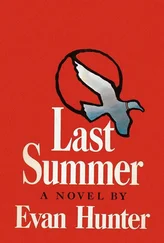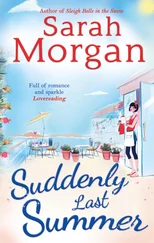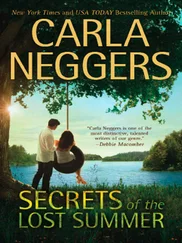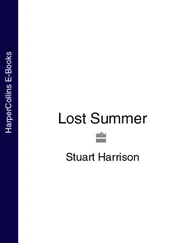It’s early, Mama wakes up late, but I knock lightly on her door each morning and whisper that I’m going down. Does she need anything? I leave a note on the fridge. I go down the back stairs and walk around the house to the street on the Nile. Billboards tower on the pavement advertising the new mobile phone company. Flyers for a new coffee shop are strewn on the tarmac, muddied by footprints. I take the bus. We lost the driver some years before, unable to afford the raise he requested, or to find someone who would work for less. We had lost most everyone, family first, then the large and varied staff that Granny had kept and Mama inherited. For all the sprawl of the house it was just me and her now, and a woman who came every ten days to clean. The house was like an echo chamber, most rooms kept permanently closed. You could hear the wind when it would come brushing even lightly against the old wood-framed windows. The floor continually squeaked. During the night inexplicable rumbles would wake me up. As a child, I had imagined these murmurs of the house to be tea parties on the roof. Now I wondered about the poetics of space, the cavities people once filled. Mama never spoke about how things had changed, but it hung heavily on her. I could see it in her gestures, how she sat at her dressing table each morning, ends of her hair in hand, combing, endlessly, as if treading in her own oblivion. Her hair was shorter now, there was little to brush through. Eventually she would come out to make breakfast. Mama drank her coffee black and ate just a quarter slice of toast with date jam. Some days I tried to make her coffee the old way, thick with sugar and cream, but she would look into the mug deeply as if she could see the bottom, then leave it untouched. The only days she made breakfast were the ones when Dido passed by on his way to work. She made him scrambled eggs and coffee the way she used to for Baba, putting shatta in the eggs and adding a spoon of salt to the coffee before mixing in five spoons of sugar. You didn’t feel the salt, but it brought out the flavors.
I stand at a slight distance from the stop, looking in on the garden and house as I wait, watching others peering in too. It is a maneuver to get on the bus. By the time it reaches this stop, almost at the end of a line to downtown, it is always full, windows open, heads sticking out, people dangling from the door, one foot in, one foot out, hands grabbing onto what they can. I let a first bus pass, then a second. When the third comes, I push my way in, sticking my twenty-five-piastre note through the crowds, crinkled, dirty. It’s pulled from my grip and a pink scrap is probed back into my palm. I scrunch my fingers around it and push. The last row is reserved for women, if they can find their way through the glut of men. I do. It’s full, but one woman lets me stand close to her feet, offers to take my bag. I hold up my palm. Thank you, it’s okay. She puts her hands to my hips and pulls me closer. I feel conscious of my groin almost in her face. She holds me there the entire ride. I try not to make eye contact. I focus on the conversations nearby about the heat. I hold my tense body as if relaxed, or unawares.
The route to downtown is one I’ve taken for years, around the perimeter of the island. What was once a view of the Nile, of rowers plowing through thick waters in the morning, is now just fence, wall, fence, overgrown garbage-filled hedge, more fence, more wall. Dust coats it all like rind. Army clubs and government cafés take what space they can down to the banks, reserved only for those in upper executive ranks. The river is barely visible, except on one solitary stretch of a few meters where the hedge refuses to grow. Going to school we would drive down the island’s length, then curve back to the eastern side. To university I continue, over the bridge with the lions and towards Tahrir Square. Police line it, slouched young conscripts leaning on loaded rifles. A man sits on the pavement selling roses. Another shining shoes. One swinging key chains. Leafy greens mark the spot of another vendor, who might have left earlier, or been taken away. They let some people stay. They take others away. Some are placed undercover.
I cross from one pavement to the next in the direction of the museum, looking right, across the square. Railings are being drilled into the tarmac, coated with enamel, painted black. The city’s little green space is now fenced off, but the grass is dead anyway, the color of straw. I cross from one pavement to another around its edge. The overhead pedestrian walkway is long gone, torn down one day after my tenth birthday. Uncle had come to the house a few days later, a Sunday, newspaper in hand, complaining. Mama had been sitting on the sofa, I on a cushion close to her feet. There was never anything in the paper anymore except the bridges the president was building, the new cities, schools, libraries, hospitals he paid for. There was also the triple-outlined front-page daily box, untitled, listing phone calls and letters of praise from world leaders. It still existed, almost a decade later. Uncle had fallen into the armchair with a thud that day, dropped himself down, arms following, my eyes plummeting with him, catching his words. A national monument has been destroyed . He shook his head with rigor. I remember looking at him and thinking he meant the Pyramids, Mama’s jaw dropping too. Then he launched into describing the most elegant circular walkway in the world, perhaps even the only one. Its proportions and elevation meant that no matter where you stood, you could see the entire green lawn of the circle in the square and the complete fountain and Italian-made sculpture. Nothing obstructed your view, regardless of what height you were at. Mama had picked up the newspaper to look for the story. Uncle groaned about the government’s neglect, not even informing people that the square would be closed. He had driven into the city to attend a meeting honoring fifty-five years of the Egyptian Surrealists, held in a storied building just off the square, and as he approached, found it barricaded. Why? Because. Can’t you at least put a sign up? He parked. A quarter of the walkway had already been demolished. The square was a mess, the lawn and fountain covered in rubble. It was just one of many acts of destruction, he had said, erasing the identity of a city. Everything we ever knew will be gone. Anything with traces of past histories. It was the legacy my generation would inherit, one of destruction and loss. He was sad for what we had been born into. Tadmeer. Tadmeer. It meant devastation. He worried it was who we had become. Sweat dripped off him like melted wax.
My memories of Uncle are the sharpest, most defined. Then, now. He complained about the walkway, and in my mind’s eye, even as a child, it brought back the flag. He had been as upset about one as the other. As I walk through the square I see, hear, feel him. I relive past moments. With Baba, only the stories are left.
I take a step up onto the pavement, maneuver over broken tiles patchworked with tarmac and pockets of sand. The gates of the museum.
Egyptian?
Egyptian, you’re sure?
Yes, Egyptian.
Egyptian? But you pay less.
I nod. Pay the twenty-five-piastre ticket. Enter. Two girls in colored veils hold hands by Sekmet. A friend snaps a shot. They giggle. I walk past the last dynasties, the fake Rosetta, Thutmosis III, Thutmosis IV, Amenophis II, Hatshepsut, granite coffins, black cats, Ibis, the relief with part of Nefertiti, her head turned sideways. Kohl holders, carvings, relics piled almost atop one another, crammed in corners, onto shelves, on staircase landings. The museum smells like Granny’s floor, musty, air trapped from decades earlier. I walk through, imagining the British looking for space, more space, trying to make sense of all they have found, creating labels, partial labels, incorrect labels. It’s haphazard, disorderly, a relic from the time it was built as much as it is a work in progress. Students are clamoring around one set of reliefs, drawing, putting papers onto exposed limestone and taking down rubbings. I hear the murmur of a young girl wanting to take home a beaded gold necklace. Imagine if it were mine? I find the statue of Akhenaton, the one where he is peering down, one hand on the shoulder of his young son. Black granite, alabaster eyes, lips pursed as if in motion, about to breathe. I sit cross-legged on the floor and bring out my notebook. I’ve taken to writing letters to people who don’t exist or once existed or exist only as statues or gods. I’ve spent many hours by this statue, the only one of a pharaoh, a ruler, depicting love towards a child. The steely formalism of pharaonic sculpture was set aside in the case of Akhenaton, his humanism represented in gestures, expression, the lines of his face. My letters to A are obsessive, about who he was, how he inhabited his body, expressed love, came to find such conviction in his worship of the sun god Aton. How did he deal with difference? I want answers I know I will never get. Dear Akhenaton, I begin. I trace the outline of his body with my eyes. His breasts, his curved hips. I imagine him lying beside Nefertiti in bed, fingers tracing parts. In the margins of my notebook I make note to read more about Nefertiti and her love for A. I write: What does it mean to be devoted? I underline these notes and then circle them, with a question mark.
Читать дальше
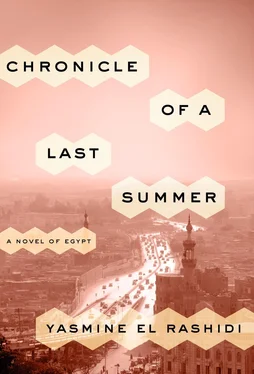
![Маргарет Миллар - Rose's Last Summer [= The Lively Corpse]](/books/384369/margaret-millar-rose-s-last-summer-the-lively-c-thumb.webp)
